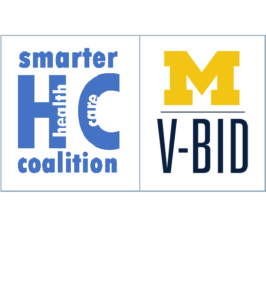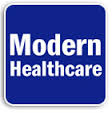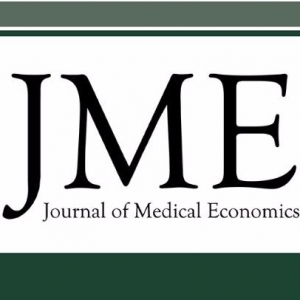Our 2017 Fall Update features policy developments, media reports, and events supporting continued momentum for multiple V-BID Center initiatives
 SHCC / V-BID Center Summit: Engaging Consumers, Providers, and Payers for the Future of Value-Based Insurance Design
SHCC / V-BID Center Summit: Engaging Consumers, Providers, and Payers for the Future of Value-Based Insurance Design
On October 25th, the Smarter Healthcare Coalition, in partnership with the University of Michigan V-BID Center, hosted the 2017 V-BID Summit in Washington, DC. Presenters included Representative Earl Blumenauer (D-OR) and Tim Gronniger, former Chief of Staff & Director of Delivery system Reform, Centers for Medicare and Medicaid Services.
View AJMC’s coverage of the Summit here.
 V-BID Center Receives 2017 National Forum Public Policy Award
V-BID Center Receives 2017 National Forum Public Policy Award
The V-BID Center was recently recognized by the National Forum for Heart Disease & Stroke Prevention for “advancing value-based care and prevention through legislation and executive policy making. The Center’s development of policy proposals and persistence in educating policy makers has led to action by both Congress and the Administration, resulting in more people benefiting from high-value health care.”
Read more.
 Senate Passes CHRONIC Care Act, Expands V-BID Testing Model to All 50 States
Senate Passes CHRONIC Care Act, Expands V-BID Testing Model to All 50 States
In late September, the United States Senate passed S. 870, Creating High-Quality Results and Outcomes Necessary to Improve Chronic (CHRONIC) Care Act of 2017, a bipartisan bill to strengthen and improve health outcomes for Medicare beneficiaries living with chronic conditions. Among the recommendations is the expansion of the Medicare Advantage V-BID demonstration to plans in any state.
Learn more about V-BID and the CHRONIC Care Act of 2017.
V-BID featured in Alexander-Murray Bipartisan Bill
This bipartisan bill was drafted to address the funding of key insurance subsidies in our healthcare system. Featured in the bill is a section encouraging the development and deployment of value-based insurance designs. The Alexander-Murray bill echoes the Blueprint proposed by Governor John Kasich and a Bipartisan Group of Governors – a blueprint focused on stabilizing health insurance markets, returning healthcare control to the states, and incentivizing innovation.
Learn more about the Alexander-Murray bill here.
 The Hill: Expand the Health savings Account ‘Safe Harbor’ to Reduce Health Costs
The Hill: Expand the Health savings Account ‘Safe Harbor’ to Reduce Health Costs
A recent article in The Hill by V-BID Center Director A. Mark Fendrick, MD, highlights the need for bipartisan solutions in HSA-HDHP reform, such as an Executive Order currently being considered by the Trump administration that would expand the pre-deductible HSA-HDHP ‘safe harbor’ to include care for chronic and pre-existing conditions. This initiative is illustrated in the V-BID Center’s new whiteboard video on HSA-HDHP reform.
Learn more about the Executive Order and V-BID in HSA-HDHPs.
 V-BID Pilot Program in Senate National Defense Authorization Act 2018
V-BID Pilot Program in Senate National Defense Authorization Act 2018
The United States Senate finalized their draft of the 2018 NDAA and provided it to the House of Representatives for revision. The Act authorizes a V-BID pilot program to accomplish a number of value-based care objectives.
Learn more about V-BID in TRICARE.
Low-cost, Low- Value Care Contributes to Unnecessary Healthcare Spending
Value Care Contributes to Unnecessary Healthcare Spending
A recent article in Modern Healthcare highlights findings on the effects of low-value care on healthcare spending in the Commonwealth of Virginia. This research, as well as the Task Force on Low-Value Care’s recent announcement of five low-value services accounting for $25 billion in avoidable annual expenditures, was mentioned in a recent NPC blog post.
Learn more about the V-BID Center’s initiative on reducing low-value care.
Read the Health Affairs article.
 V-BID in Precision Medicine
V-BID in Precision Medicine
The V-BID Center’s precision medicine initiative outlines how an increasingly personal approach to clinical medicine allows for more precise treatment plans and the ability to better determine what care is high-value for specific patients. As scientific breakthroughs allow clinically indicated high-value therapies, the V-BID Center believes that patient out-of-pocket costs should be aligned with delivering precise, high-value care. At the Community Oncology Alliance’s 7th Payer Exchange Summit on October 24th, A. Mark Fendrick, MD, presented “Right Drug, Right Patient, Right Time.”
Learn more about V-BID and precision medicine here.
 New V-BID Resources
New V-BID Resources
The Financial Impact of V-BID infographic outlines the three key ways that V-BID impacts healthcare costs, while the Precision Patient Assistance Program brief and infographic describe how clinical nuance can create alignment between payers and drug manufacturers to help ensure that patients receive high-value care. The new High-Value Health Plan video illustrates the V-BID Center’s initiative to expand the pre-deductible HSA-HDHP ‘safe harbor’ to include care for chronic and pre-existing conditions.
 Clinically Nuanced Medicaid Cost-Sharing
Clinically Nuanced Medicaid Cost-Sharing
The Journal of Medical Economics recently published an article by Betsy Q. Cliff and A. Mark Fendrick, MD, exploring the effects of increased Medicaid enrollee cost-sharing on patient decision-making and medication adherence. The article outlines how clinically nuanced benefit designs can encourage use of high-value services and discourage use of low-value services, while mitigating medication adherence concerns.
Read the full article here.
 Two Trump Administration Notices Request Information on V-BID
Two Trump Administration Notices Request Information on V-BID
The CMS Innovation Center and the HHS 2019 Notice of Benefit and Payment Parameters requests for information explicitly include Value-Based Insurance Design (V-BID). These RFIs demonstrate continued momentum for V-BID in federal programs.
Please Help Support the V-BID Center
As a non-profit entity, the V-BID Center relies on fundraising to support our research, education, and policy efforts.
Please help us continue our work by donating here. We truly appreciate your consideration.










